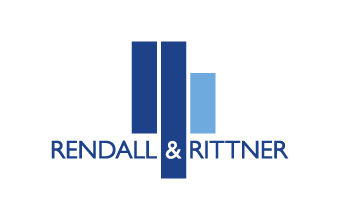OneBlock tackles top 10 block management concerns with a user-friendly...
Read MoreWith an average of 30 costly emergency callouts per month plaguing London blocks, proactive maintenance, resident engagement, and robust response plans are essential for block managers to create a culture of preventative care and minimise disruptions.
Want to Streamline Your Block Maintenance?
OneBlock Offers:
UK Companies Who Trust Us With Their Property Maintenance






For a seasoned block manager in London, the piercing ring of the emergency phone can feel like an unwelcome soundtrack to their day. We all know the drill: a burst pipe, a flickering light, a jammed lift – these scenarios can quickly spiral into resident frustration and costly repairs. Here’s the sobering truth: London block managers face an average of 30 emergency callouts per month, translating to a staggering estimated annual cost of £50,00 in emergency repairs alone.
Having spent over two decades navigating the intricacies of block maintenance in London, I’ve witnessed firsthand the disruption and financial strain these emergencies create. This article delves into the world of emergency callouts, offering insights and strategies to help block managers, property managers, block owners, and residents navigate this often turbulent terrain.
Navigating This Article:
- The Cost of Chaos: London block managers face an average of 30 emergency callouts per month, costing an estimated £50,000 annually.
- Common Culprits: Plumbing emergencies, electrical faults, lift breakdowns, security breaches, and fire safety issues are common triggers for callouts.
- Proactive Strategies: Regular inspections, planned maintenance, resident communication, robust maintenance plans, and partnering with reliable contractors minimise emergencies.
- Resident Engagement: Reporting issues promptly, understanding proper waste disposal, and familiarising themselves with safety procedures empower residents.
- Benefits Beyond Cost Savings: Reduced disruptions, increased resident satisfaction, and a safer living environment are rewards of a proactive approach.
- Resources for Block Managers: National Federation of Residential Management (NFRM), Leasehold Management Association (LMA), Chartered Institute of Housing (CIH) offer valuable resources and guidance.
The Cost of Chaos: Why Emergency Callouts Bite
The financial sting of emergency callouts is undeniable. Consider this: a single callout for a plumbing emergency like a burst pipe can easily cost upwards of £200, and that’s without factoring in potential damage to flooring or personal belongings. Multiply this by the average of 30 callouts per month, and the financial burden for a block becomes significant.
“A stitch in time saves nine” holds immense truth for block maintenance. Proactive maintenance plans significantly reduce emergency callouts and associated costs.” – Sarah Bentley, Director of Compliance, National Federation of Residential Management (NFRM)
Beyond the bottom line, emergency callouts disrupt the smooth functioning of a block.
Imagine:
- Disgruntled residents: Facing a burst pipe or a power outage creates frustration and inconvenience for residents.
- Disrupted routines: Emergency repairs often require access to units, potentially disrupting residents’ daily lives.
- Reactive solutions: By nature, emergencies demand immediate attention, leaving little time for cost-effective solutions.
The Culprits Behind the Chaos: Common Emergency Callouts in London Blocks
Several culprits commonly plague London blocks, triggering those dreaded emergency calls:
- Plumbing emergencies: Leaky pipes, burst connections, and blocked drains top the list, causing water damage and inconvenience.
- Electrical faults: Power outages, flickering lights, and faulty wiring can pose safety hazards and disrupt daily life.
- Lift breakdowns: A malfunctioning lift can trap residents and disrupt accessibility for those with mobility issues.
- Security breaches: Break-ins, faulty access controls, or malfunctioning CCTV systems can compromise security and create resident anxiety.
- Fire safety issues: Fire alarm malfunctions, missing fire extinguishers, or blocked escape routes necessitate immediate attention.
Taming the Tide: Strategies for Minimising Emergency Callouts
The good news: with a proactive approach, block managers can significantly reduce the frequency and impact of emergency callouts. Here’s your toolkit:
- Embrace preventative maintenance: Regular inspections by qualified professionals can identify potential problems before they morph into emergencies.
- Invest in planned maintenance: Schedule routine servicing of critical building systems like lifts, plumbing, and electrical systems to catch issues early.
- Prioritize resident communication: Encourage residents to report minor issues promptly, preventing them from escalating into emergencies.
- Implement a robust maintenance plan: A well-defined plan with clear procedures guides effective responses to emergencies, minimizing disruption.
- Partner with reputable contractors: Having reliable contractors on call ensures prompt, qualified emergency repairs at competitive rates.
Resident Engagement: Building a Culture of Awareness
Residents play a crucial role in minimising emergency callouts. Here’s how:
- Reporting minor issues promptly: A small leak today can turn disastrous tomorrow.
- Understanding proper waste disposal: Improperly disposed items can clog drains, leading to plumbing emergencies.
- Familiarising themselves with safety procedures: Knowing how to use fire extinguishers and report security breaches is vital.
“Building a culture of awareness among residents fosters a sense of shared responsibility for maintaining a safe and functional block environment.” – David Moore, CEO, Leasehold Management Association (LMA)
A Proactive Approach Pays Dividends
By prioritising preventative maintenance, fostering resident engagement, and implementing a robust emergency response plan, block managers can significantly reduce the frequency and impact of emergency callouts. Remember, proactive measures are far less expensive and disruptive than reactive emergency repairs.
The benefits extend beyond financial savings. Reduced disruptions, increased resident satisfaction, and a safer living environment are just some of the rewards for a proactive approach to block maintenance. So, take charge, embrace preventative strategies, and transform your block from a haven for emergencies into a community of well-maintained calm.
Food For Thought
London block managers face an average of 30 emergency callouts per month, costing an estimated £50,000 annually.
- Proactive maintenance plans, resident communication, and robust emergency response plans are key to minimising emergencies.
- Empowering residents through awareness fosters a sense of shared responsibility for a safe and functional block.
Beyond the Blog: Resources for Block Managers
Equipping yourself with the right knowledge and resources empowers you to navigate the complexities of block maintenance:
- National Federation of Residential Management (NFRM): https://www.nationaldatacare.com/products/resident-fund-management-service/ (Offers training, resources, and guidance on best practices for block management)
- Leasehold Management Association (LMA): https://www.lease-assn.org/ (Provides guidance on legal requirements, dispute resolution, and health and safety regulations for residential blocks)
- Chartered Institute of Housing (CIH): https://www.cih.org/ (Offers qualifications, training, and resources for property professionals, including guidance on preventative maintenance)
Final Thought: Investing in Peace of Mind
Imagine a London block where emergency calls are a rarity, replaced by a culture of preventative maintenance and resident collaboration. This vision is achievable with a proactive approach. Remember, the cost of a well-maintained block pales in comparison to the disruption and financial burden of frequent emergencies.
By taking charge and implementing the strategies outlined in this article, you can transform your block from a battleground of emergencies into a haven of peace of mind for residents and block managers alike.
More block maintenance related articles
Using Technology To Improve Block Management
Technology trends like online portals, mobile solutions, and data analytics...
Read More7 Smart Strategies for Stretching Your Block Maintenance Budget Further
Invest in proactive maintenance, negotiate contracts, utilise OneBlock's fixed-term subscriptions...
Read More30 Calls, £50,000 Later: The High Cost of Ignoring Block Maintenance
With an average of 30 costly emergency callouts per month...
Read More



